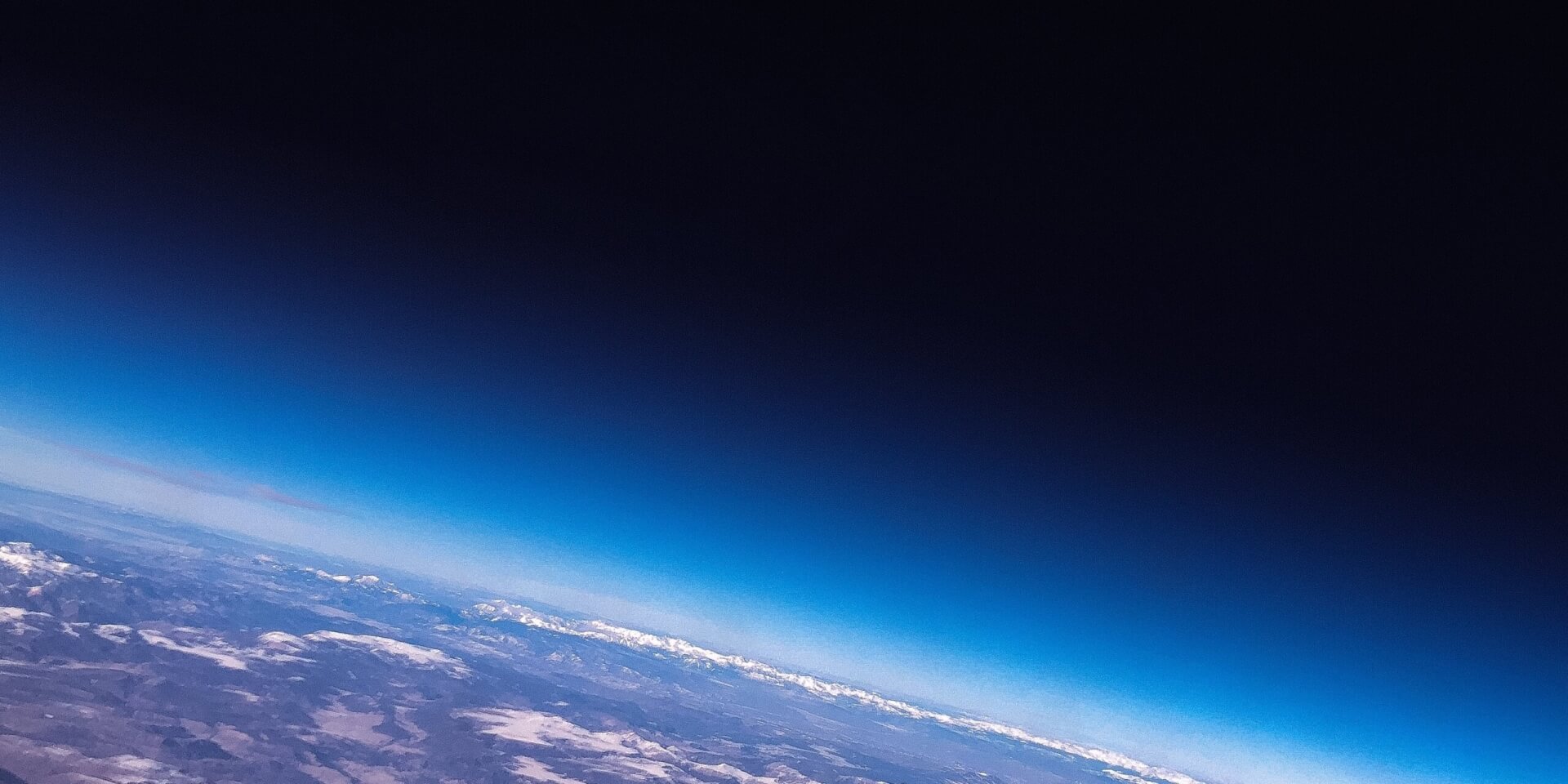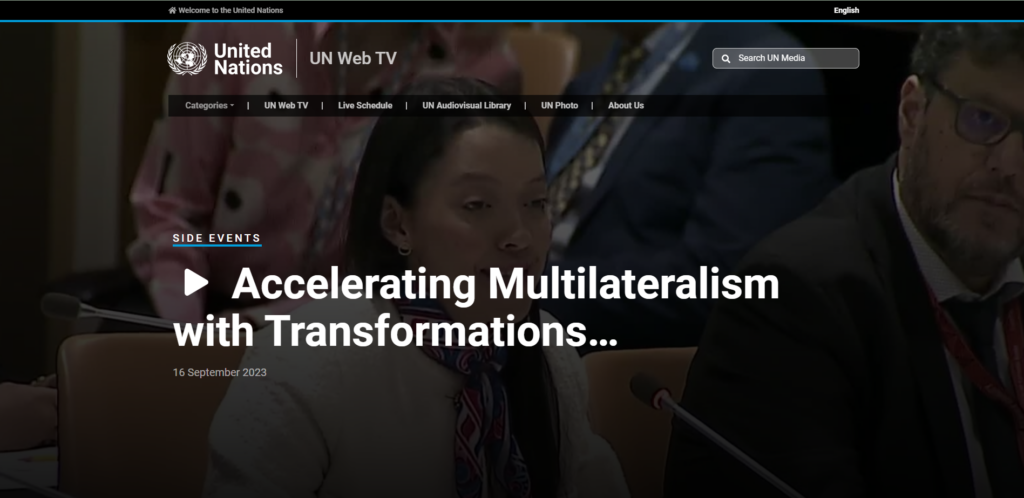
To maximize the SDG Summit’s impact, the Secretary General has convened an SDG Action Weekend to explore new opportunities and partnerhips to drive SDG transformation between now and 2030. On 16 September, the Sustainable Development Solutions Network (SDSN) , the Permanent Mission of Ireland to the UN, the Permanent Mission of Zealand to the UN, UNESCO and the International Science Council (ISC), organized a Side Event (“Accelerating Multilateralism with Transformations in Science Policy Practice Interfaces“) at the SDG Action Weekend.
María Estelí Jarquín, International Relations Coordinator at the UK Centre for Ecology & Hydrology (UKCEH), Member of the ISC Standing Committee for Outreach and Engagement 2022-2025, and ISC special advisor delivered this inspiring statement:
“I would like to start with a reflection of one of the most beautiful collective missions that humankind has ever embarked on.
In 1977, NASA launched to space The Voyagers, two space probes destined to know a little bit more about the Universe. Forty-six years later, they are still in operation in interstellar space, becoming the most distant human-made object from Earth. The Voyagers also carry inside a Golden Record containing sounds and images selected to portray the diversity of life and culture on Earth. Images of a woman scientist with a microscope, the DNA structure, a violin, greetings to the Universe in 55 different languages, and many other aspects of our daily life as humans.
I often wonder if we dare to build a new Golden Record today: What would we put inside to represent life as we know? To represent science and diversity? And, specially, what story we would like to store there that tell our commitments and contributions to the most important collective dream of this century: the SDGs.
I am here representing the International Science Council, the ISC, a global organisation that unites scientific bodies across the social and natural sciences. The ISC recently launched the report “Flipping the Science Model: A roadmap to Science Missions for Sustainability” where two key messages to transform Science Policy interfaces in multilateralism stand:
First, in this collective dream that we are dreaming, it is imperative to adopt new funding approaches for science, leaving behind the intense competition and the silos to walk towards a co-created science that truly builds equitable and respectful partnerships between High- and Low-income countries. The way we fund science and encourage international collaborations will have a direct effect in how we mobilize the science that is discussed here at the United Nations.
The second message is the importance of encouraging transdisciplinary and mission-oriented science. Long-term, actionable, and creative science, like the Voyagers and the Golden Record. Missions that will outlive a generation for others to take care of. Science that will provide context-specific solutions to accelerate the progress towards the implementation of the 2030 Agenda.
On these two messages, let’s all remember Target 16.8 of SDG 16: “Broaden and strengthen the participation of developing countries in the institutions of global governance”. This inclusive participation requires all countries to have access to the latest scientific evidence, but also ensuring that this science is diverse, open, and draw from local knowledge. However, not all countries can afford to bring large teams of scientists to advise their diplomatic delegations, and when they do it oftens constitute a monumental effort that doesn’t escape acute political, economic, and human capital constraints. I also urged Member States to ensure a fair representation of countries in the governance of IGSO’s, Intergovernmental Science Organizations, builders of long-term scientific outcomes for the benefit of all humankind.
This is the image that I would like to include in our 21st century Golden Record: A world mobilized by mission-oriented science encouraging a fair and equitable concert of nations. As Carl Sagan once said: Let’s this Golden Record represents our hope and our determination.
Let’s then work collectively for the SGD’s inspired by hope and curiosity, values of science, that should always be our guiding forces in the making of the Golden Record of our century.”
Watch Maria’s statement on the UN Web TV:

Disclaimer
The information, opinions and recommendations presented in this article are those of the individual contributor/s, and do not necessarily reflect the values and beliefs of the International Science Council.
Photo by ActionVance on Unsplash